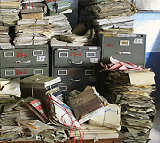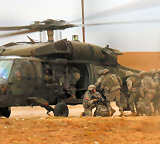 The Bureau of Industry and Security (“BIS”) recently set aside a default judgment denying export privileges to S.P. Equipamentos de Protecao ao Trabalho Ltda (“SPE”), a Brazilian firm charged with violating U.S. export laws by re-exporting night vision equipment to Brazil’s State Secretariat of Civil Defense. The reasons given by Undersecretary Mancuso for setting aside the judgment suggest, at best, a simple mistake by BIS’s Office of Chief Counsel (“OCC”) and, at worst, a violation of BIS’s rules by the OCC. Somewhere in between is the possibility of some legal but unfair shenanigans by BIS’s lawyers.
The Bureau of Industry and Security (“BIS”) recently set aside a default judgment denying export privileges to S.P. Equipamentos de Protecao ao Trabalho Ltda (“SPE”), a Brazilian firm charged with violating U.S. export laws by re-exporting night vision equipment to Brazil’s State Secretariat of Civil Defense. The reasons given by Undersecretary Mancuso for setting aside the judgment suggest, at best, a simple mistake by BIS’s Office of Chief Counsel (“OCC”) and, at worst, a violation of BIS’s rules by the OCC. Somewhere in between is the possibility of some legal but unfair shenanigans by BIS’s lawyers.
According to Undersecretary Mancuso’s decision, a charging letter was sent to SPE on September 13, 2004, and received by SPE eleven days later. On February 7, 2005, counsel for SPE filed an appearance with BIS. On November 11, 2006, BIS filed a motion for default based on the failure of SPE to file an answer to the charging letter within 30 days as required by the Export Administration Regulations (“EAR”). On January 31, 2007, the BIS Administrative Law Judge entered a default judgment which was approved by BIS on February 26, 2007.
On September 7, 2007, Counsel for SPE filed motion to set aside the default judgment for good cause, arguing that it did not receive a copy from BIS’s counsel of the motion for default. The certificate of service for the default judgment, which is addressed only to BIS’s counsel, supports this claim of failure of service. Undersecretary Mancuso’s decision further states that there is evidence that for about a year prior to BIS’s filing of the motion for default, counsel for SPE and counsel for BIS “engaged in settlement negotiations” regarding these charges. BIS filed a response which did not oppose SPE’s claim that good cause existed to set aside the default.
The question here, of course, is why on earth did counsel for BIS fail to file the motion for default on SPE’s counsel with whom it had been negotiating the matter for a considerable period of time? Section 766.5 of the EAR governs service of papers other than the charging letter. It explicitly states that service must be made on “each party in the proceeding.” If a party is represented by counsel, service on such counsel constitutes service on the party.
Section 766.7 of the EAR governs default motions and states:
Failure of the respondent to file an answer within the time provided constitutes a waiver of the respondent’s right to appear and contest the allegations in the charging letter. In such event, the administrative law judge, on BIS’s motion and without further notice to the respondent, shall find the facts to be as alleged in the charging letter.
That rule says that the default judgment can be entered “without further notice,” but it doesn’t say, in my view, that the motion for default isn’t subject to the service rules provided in Section 766.5. Even supposing that it does, isn’t it a violation of Simple Decency and Fairness 101 not to mail a copy of such a motion to opposing counsel?
Perhaps it was a simple oversight by BIS’s lawyer, but it’s hard to imagine how that happened. In all events, however, BIS did what appears to be the right thing by setting aside a default judgment that was obtained through a motion that wasn’t served on the respondent’s counsel.

 Posted by
Posted by  Category:
Category: 

 The Office of Foreign Assets Control (“OFAC”) yesterday released its
The Office of Foreign Assets Control (“OFAC”) yesterday released its  If any company considering its first export transaction actually read and tried to understand the recordkeeping requirements of
If any company considering its first export transaction actually read and tried to understand the recordkeeping requirements of  U.S. District Court Judge Inge P. Johnson, after a seven day bench trial, recently
U.S. District Court Judge Inge P. Johnson, after a seven day bench trial, recently  Last week, on October 31, the Office of Foreign Assets Control issued a
Last week, on October 31, the Office of Foreign Assets Control issued a 

